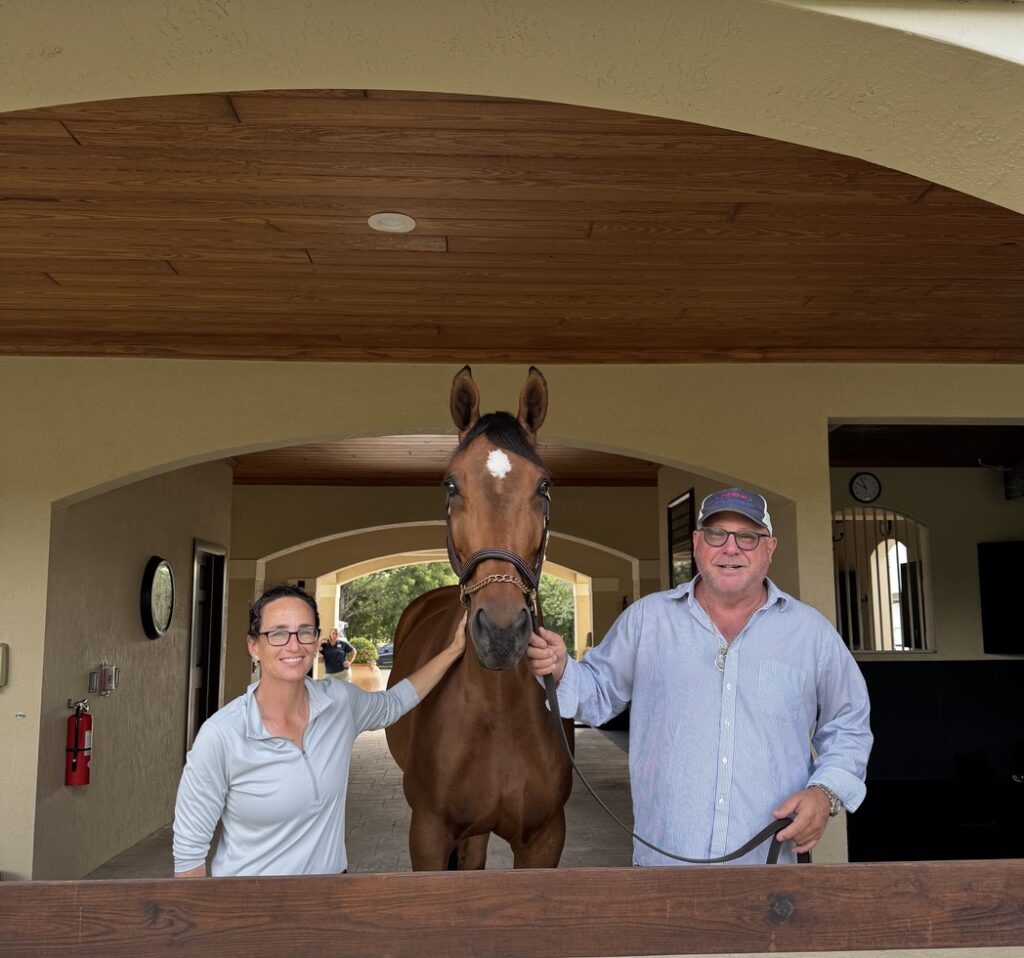The Last Leg of International Travel: CEM Quarantine

Whether returning home after a thrilling summer competing on the European circuits, traveling from a home base abroad, or importing a newly purchased equine, every horse entering the United States must follow specific guidelines based on the country of origin. Once the horse “clears customs” at the airport, satisfying United States Department of Agriculture (USDA) import requirements, there’s one more thing owners must consider before their horse reaches its final destination.
Mares and stallions remaining in the United States beyond the temporary stay period must undergo additional quarantine for Contagious Equine Metritis (CEM). This sexually transmitted bacterial infection can cause infertility in mares and is carried by stallions. While endemic in Europe, the disease is not currently in the U.S., so testing and quarantine for horses entering the country from areas with confirmed cases are essential to maintain that disease-free status.
Fortunately for horses traveling to Florida, Palm Beach Equine Clinic’s Dr. Jordan Lewis works closely with Richard Faver at Ossian Ventures, one of the largest commercial CEM quarantine facilities in Florida, to oversee and conduct the rigorous testing process, which differs based on whether the animal is a mare or stallion.
“Mares are usually with us for about 15 days. They need three sets of negative cultures, 72 hours apart, and then five days of washing with chlorhexidine and applying silver sulfadiazine as a topical treatment, which we call ‘clean and pack,’” explained Dr. Lewis, adding that they take samples from three areas of the mare and also pull a blood test, called a complement fixation (CF). The CF results and each set of cultures must be sent by mail to a lab for testing, and turnaround times are about a week for the cultures and a few days for the blood.
“Stallions are a little different,” continued Dr. Lewis, noting that their process takes about 35 days. Within the first few days, a culture is taken from the stallion and sent for testing.
“When the culture comes back negative, we have a set of mares called test mares that are cycled and ready to breed,” she said. “Those stallions live cover two test mares, which then start getting cultured on day three post-breeding. They go through the same process as the other mares: three sets of cultures, 72 hours apart. Twenty-one days after breeding, they do the CF test on those mares.”
Dr. Lewis noted that the test mares undergo a process called “short cycling” to ensure they will not become pregnant from these breedings. Each stallion also receives a clean and pack treatment after breeding and can then be released once all testing returns negative.
Throughout the horse’s stay at Ossian Ventures, Dr. Lewis and other Palm Beach Equine Clinic veterinarians are available to provide any additional care the animal might need after its long journey, including Coggins testing, if necessary, in preparation for the next step in the horse’s travel plans. Owners are welcome to visit and ride during this time, given that horses are kept from interacting, and any equipment that touches the animal stays at the facility and is only used on that horse.
“I just enjoy being part of the process,” shared Dr. Lewis about her role in maintaining the health and safety of the horses in quarantine. “Plus, we certainly get to see some world-class horses coming through, which is fun.”
There are many factors to consider when traveling internationally with horses, but the Palm Beach Equine Clinic is dedicated to providing quality care at every step, from touchdown at the airport to quarantine and beyond. This is the final article in a three-part series by Palm Beach Equine Clinic veterinarians detailing the rules and procedures of importing and exporting horses. Read part one on exporting horses by Dr. Janet Greenfield, followed by her second article on importing horses for temporary stays in the October and November issues of The Plaid Horse magazine. Contact Palm Beach Equine Clinic at 561-793-1599 for any equine health needs.